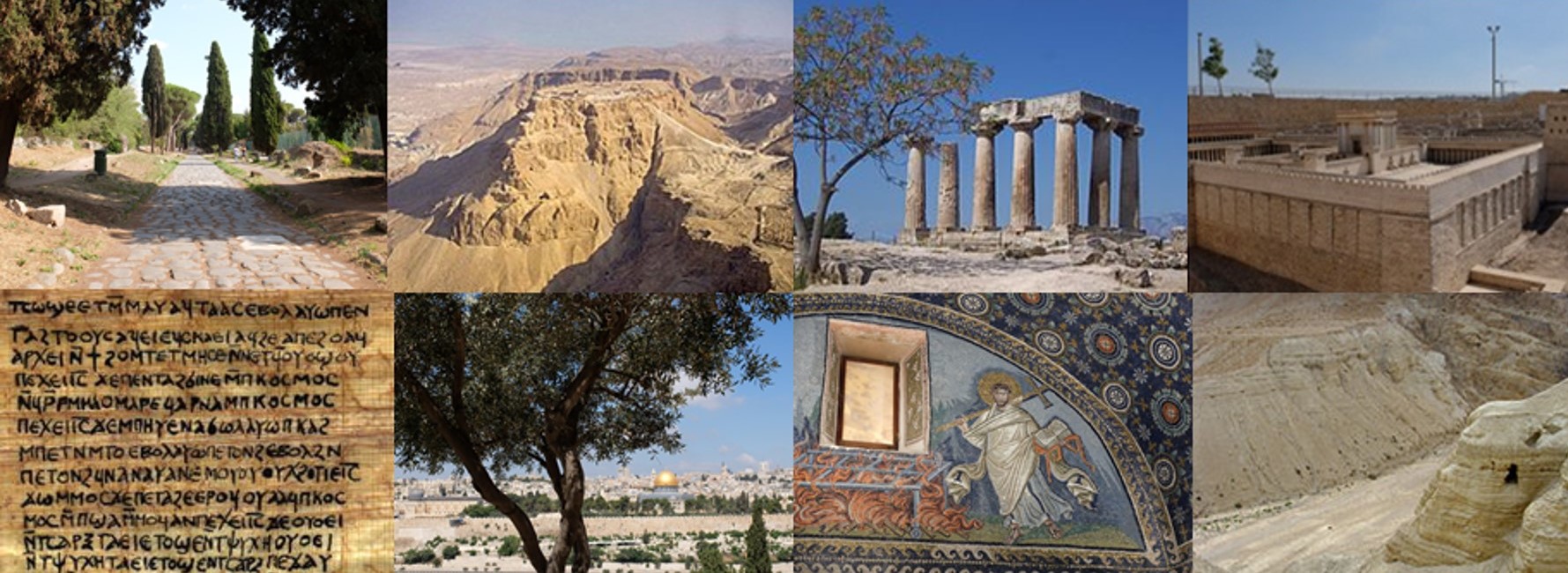Session 1
Chris Norden, Bristol Baptist College, ‘The Faithfulness of God, and Paul: Reading Acts 13:16-41 and 20:18-35 together’
The speeches of Paul at Pisidian Antioch (Acts 13:16-41) and Miletus (20:18-35) provide a sort of frame for Luke’s presentation of Paul’s free missionary activity. The contexts and contents of the two speeches are very different: the earlier speech is delivered in a synagogue and primarily concerns the faithfulness of God to Israel, while the later one is to church leaders and focuses on the faithfulness of Paul to his calling. Because of such contrasts, each speech has normally been compared with other material in Luke-Acts and beyond, but seldom with the other speech. Using a narrative-critical approach, I briefly summarise the narrative significance of each speech, before going on to discuss how reading them in relation to one another may provide insights into Luke’s characterisation of Paul, contributing to an impression that Luke is not an uncritical observer of Paul.
Todd Thomason, University of Edinburgh, ‘James’s Invocation of the σκηνὴν Δαυιδ in Acts 15: Eschatological Fulfilment or Theological Nostalgia?’
James’s speech to the “Apostolic Council” has long been esteemed as a watershed moment in Acts: The inclusion of Gentiles is affirmed and a schism between Antioch and Jerusalem is avoided. I will contend that an analysis of intratextual echoes within Acts 15 and an inclusio formed by the term σκηνή, which unites Acts 7-15 as a narrative unit, complicates this traditional assessment of the speech by setting James’s interpretation of God’s activity in tension with the earlier proclamations of Stephen, Peter, and Paul. Following an overview of James’s speech in which I highlight these intratextual echoes, I will explore material within the inclusio that undercuts James’s exegetical logic. This examination will reveal that, while James is prepared to welcome Gentiles into the fold of the Jesus movement, his appeal to Amos’s vision of a restored σκηνή Δαυὶδ demonstrates he understands Gentile inclusion in a way that does not align with “what Simeon has reported.” Ultimately, James maintains a pre-Cornelius understanding of God’s redeeming work.
Session 2
Panel review of Steve Walton, Acts 1-9:42, Volume 37A, Word Biblical Commentary, 2024
We are delighted to have a panel discussion on Steve Walton’s 2024 commentary on the Book of Acts, chapters 1-9:42, in the Word Biblical Commentary series (Volume 37A). Our panellists are Loveday Alexander (University of Sheffield, emerita), David Horrell (University of Exeter), and Luke Macnamara OSB (St Patrick’s Pontifical University, Maynooth).
Session 3
Will Loescher, Independent scholar, ‘The Ambiguous Bust-Up between Paul and Barnabas (Acts 15:36–41)’
This paper explores the possible interpretations of this unexpected and shocking incident against the background of ambiguity in ancient literature, narrative theory, and divine revelation. It also considers the various aspects of textual inferences and pastoral applications before proposing a solution based on the underlying issues for a wider literary reading of the gospel mission from the Acts 15 Jerusalem Conference onwards.
Michael Blythe, Africa Nazarene University, ‘Unsettling Imperial Ethos: A Socio-Political Exorcism at Philippi in Acts 16’
Building upon Richard Horsley’s hypothesis, this study employs Acts 16:11–40 as a case study to explore how Luke’s narrative symbolically depicts Roman militarism and imperial oppression through the exorcism event in Philippi. By interpreting the possessed slave girl’s “spirit of Python” as a representation of imperial authority, the encounter is reframed as a direct confrontation with Roman socio-political dominance. Utilizing a cultural anthropological approach similar to Horsley’s interpretation of Mark 5:1–20, this analysis highlights the exorcism as both spiritual liberation and political subversion, symbolically driving out oppressive powers and restoring communal wholeness. The Philippian episode serves as a key literary bridge to Acts’ narrative culmination in Rome, emphasizing a progressive confrontation between the Gospel and imperial authority. Ultimately, Paul and Silas’s imprisonment and dramatic release illustrate Luke’s broader theological vision of the Holy Spirit’s superior authority dismantling Roman imperial ideology. Thus, Acts’ Philippian account exemplifies a narrative strategy unsettling imperial ethos, portraying the Gospel as a force subverting oppressive political and spiritual systems.
Richard Cleaves, University of Gloucestershire, ‘Imagining Luke-Acts in Roman Britain … through the eyes of those responsible for the Uley curse tablets’
The recent publication of three archives of written material from early Roman Britain has the potential to throw light on the way Luke and Acts were received by their first audiences. The traders, merchants and financiers of the Bloomberg tablets (published 2016), the women as well as men of the military community of the Vindolanda tablets (1983-2019 and ongoing), and the members of the rural community of the Uley curse tablets (2024) were not only the kind of people we meet in Luke-Acts, but also the contemporaries of its first readers. Drawing on the insights of archival ethnography, it is possible to develop an understanding of these people through their very own hand-written documents. We can then imagine how they might have read texts from Luke-Acts, had they become followers of The Way. This paper will imagine how passages to do with temple ritual, cursing and praying would be received by those responsible for the Uley curse tablets and demonstrate the value of collaboration between Roman Britain research and New Testament research.

